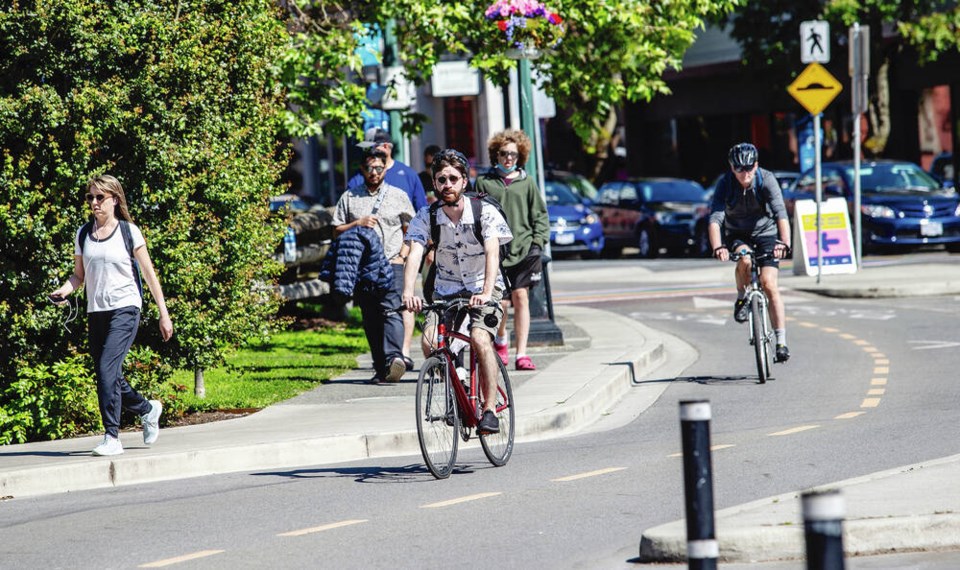The Club of Rome has just published what may be its most consequential report since The Limits to Growth in 1972.
Fifty years on, they created a stellar panel of Earth scientists, economists, social-development experts and activists to write Earth For All, sub-titled A Survival Guide for Humanity.
The book and related website and other activities are intended “to help steer humanity away from ecological and social catastrophe.”
“We are in the midst of a planetary crisis of our own making,” they write.
I will not repeat here their discussion of the challenges we face; I have discussed them often in these columns, most recently in August, and before that in June.
Because what really matters is what we do about the crisis we face.
“The long-term potential of humanity,” the authors state, “depends upon civilization … undergoing nothing short of five extraordinary turnarounds within the coming decades.”
These are to end poverty, address gross inequality, empower women, make our food system healthy for people and ecosystems and transition to clean energy. Underpinning them all is a radical transformation of our economy
Moreover, they write, “there is sufficient knowledge, funds and technologies in the world to implement them.”
For example, they indicate that it would take an investment of only two-four per cent of global income each year to fund the energy and food system turnarounds. And they believe this is achievable by 2050.
For obvious reasons, their focus is largely on national and global policies; words such as local, municipal or community do not appear in the index.
But in the midst of municipal elections, it is important that candidates who want to run our municipalities for the next four years think and talk about what local actions are needed to support these transformations.
And it is important that voters ask them about these issues and judge them on their understanding and commitment.
So, for example, when candidates talk about securing economic development, ask “to do what?”
Will economic growth increase our greenhouse-gas emissions, our consumption of resources and our waste emissions?
Or will it entail a switch to energy and resource conservation, restoration of our local ecosystems, ecologically sustainable food systems and reductions in waste and pollution?
Will it create jobs that provide a living wage, or more part-time, insecure jobs with minimal benefits?
On housing, transportation and urban development, will they prioritize the creation of social housing by providing land and incentives and cutting red tape and support creating an abundance of housing, especially “missing middle housing,” in a manner that is human-scale and attractive, while at the same time increasing energy and resource conservation?
Will they promote walking, biking/rolling and public transportation, expand the all-ages-and-abilities trail network and implement the Victoria Transit Future Plan?
Or will they promote further environmentally damaging urban sprawl, large single-family dwellings and a car-focused transportation system?
On environment and energy, will they follow the lead of Vancouver and ban new fossil fuel hook-ups? Will they develop a regional strategy to shift us to a clean net-zero-carbon energy system ASAP?
Will they protect and restore natural areas and promote sustainable, regenerative agriculture? Will they adopt a zero-waste policy, especially for food waste, and oppose landfill expansion?
It should not come as a surprise that these ideas sound like many of the proposals put forward to create One Planet communities and to create a more livable Victoria.
They, too, come from an understanding that for the sake of future generations and for people around the world, we have to become a model of how to live well and with justice within the limits of the Earth.
Earth for All ends with a call to create a social movement rooted in conversations “in every home, every school, every university, every town and city” about these necessary transformations.
And they urge the creation at local and national levels of citizens’ assemblies to discuss how to bring about these changes.
So a final question for candidates: Will you support the creation of a regional Citizens’ Assembly to discuss how to create a livable, healthy, just and sustainable community here in the Greater Victoria region?
And if not, why not?
Dr. Trevor Hancock is a retired professor and senior scholar at the University of Victoria’s School of Public Health and Social Policy



